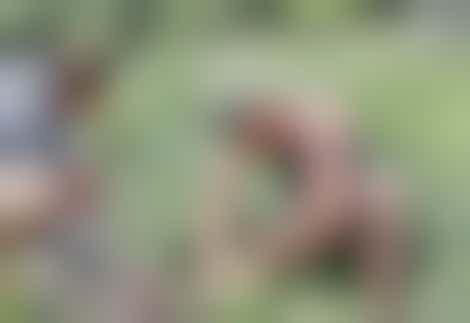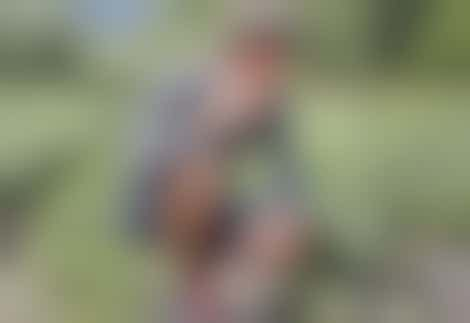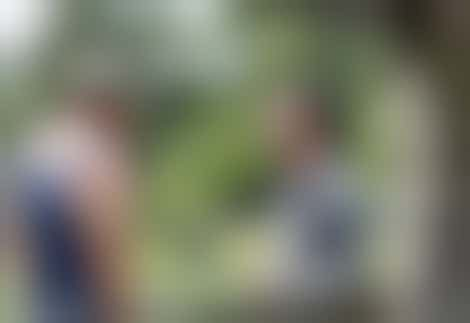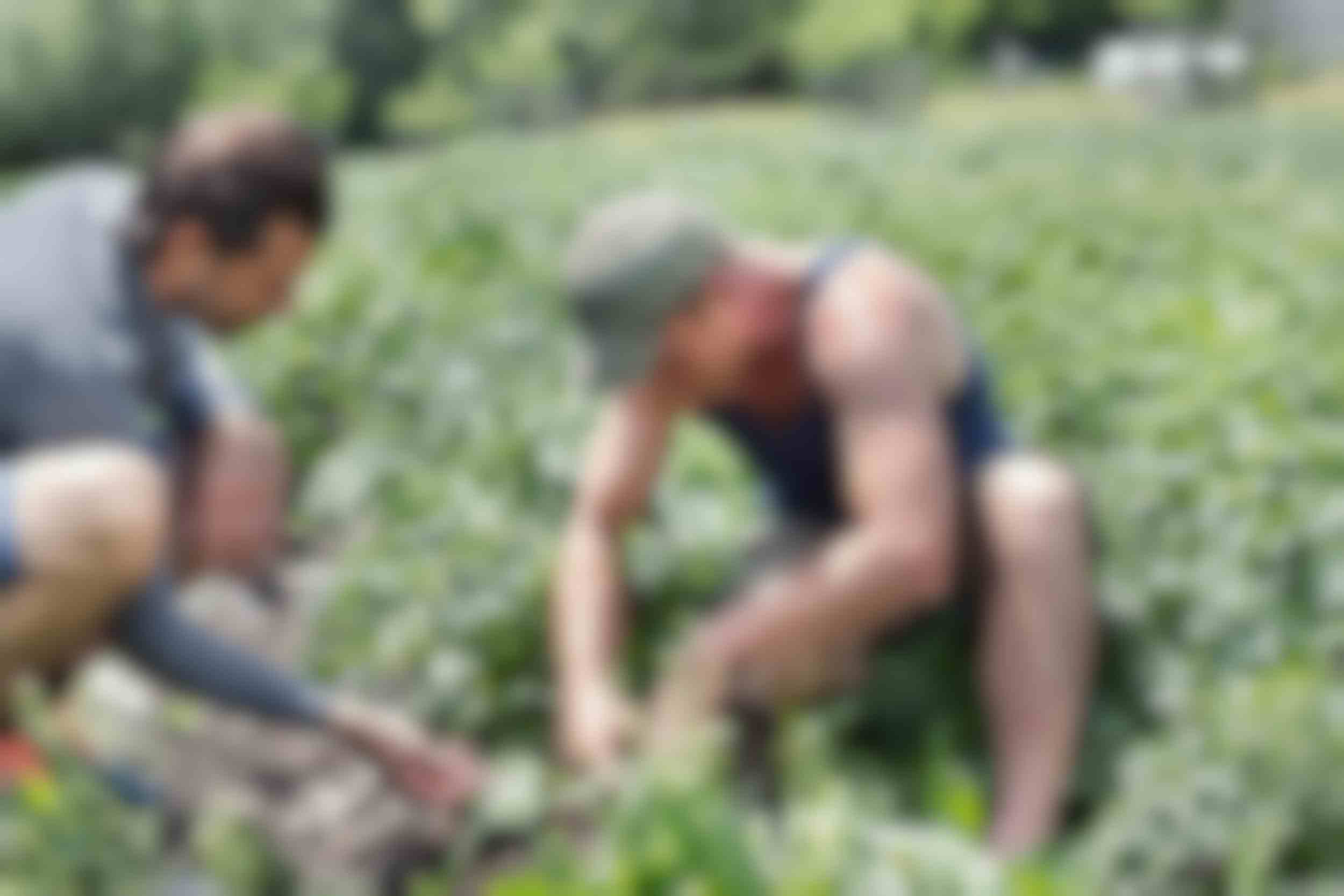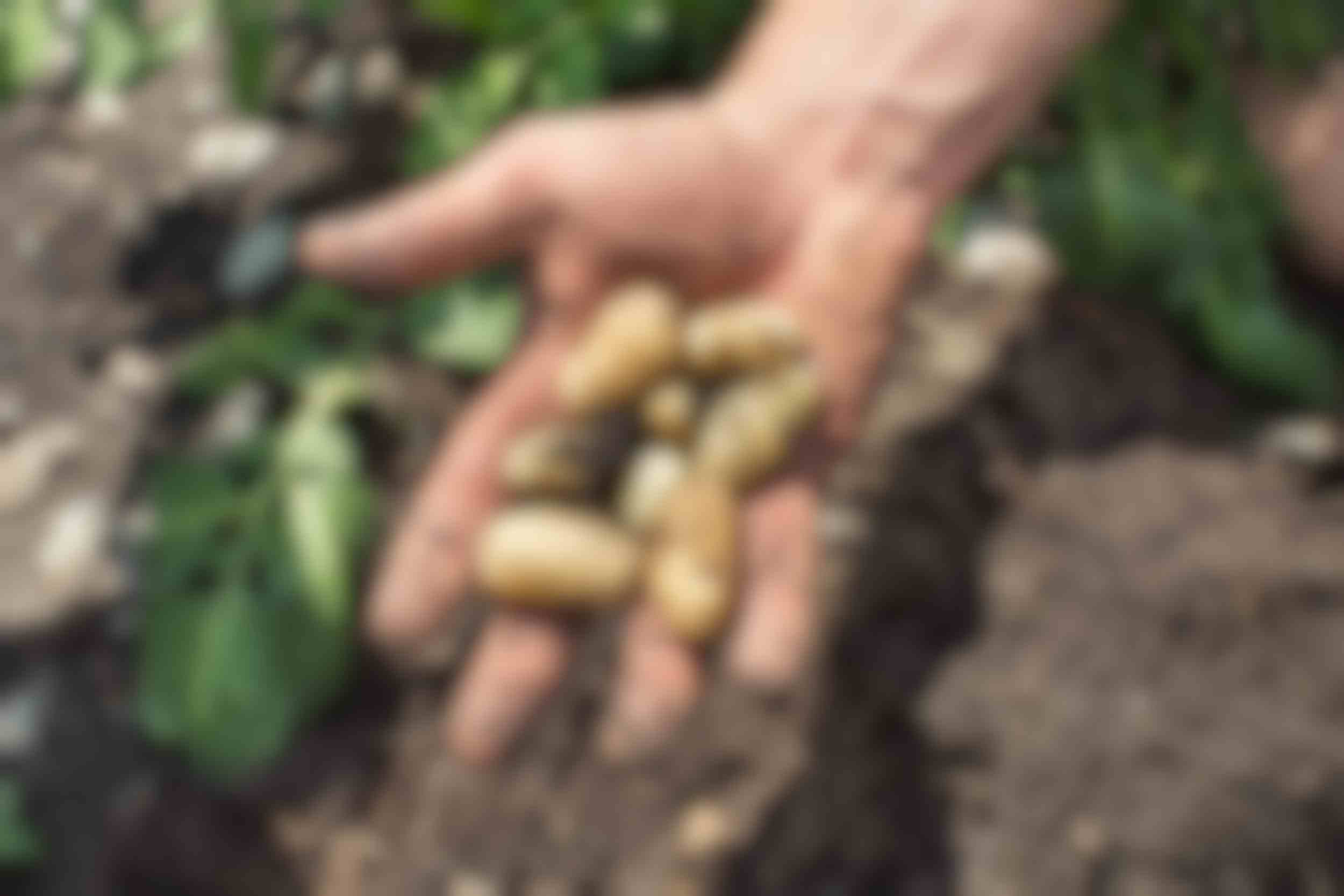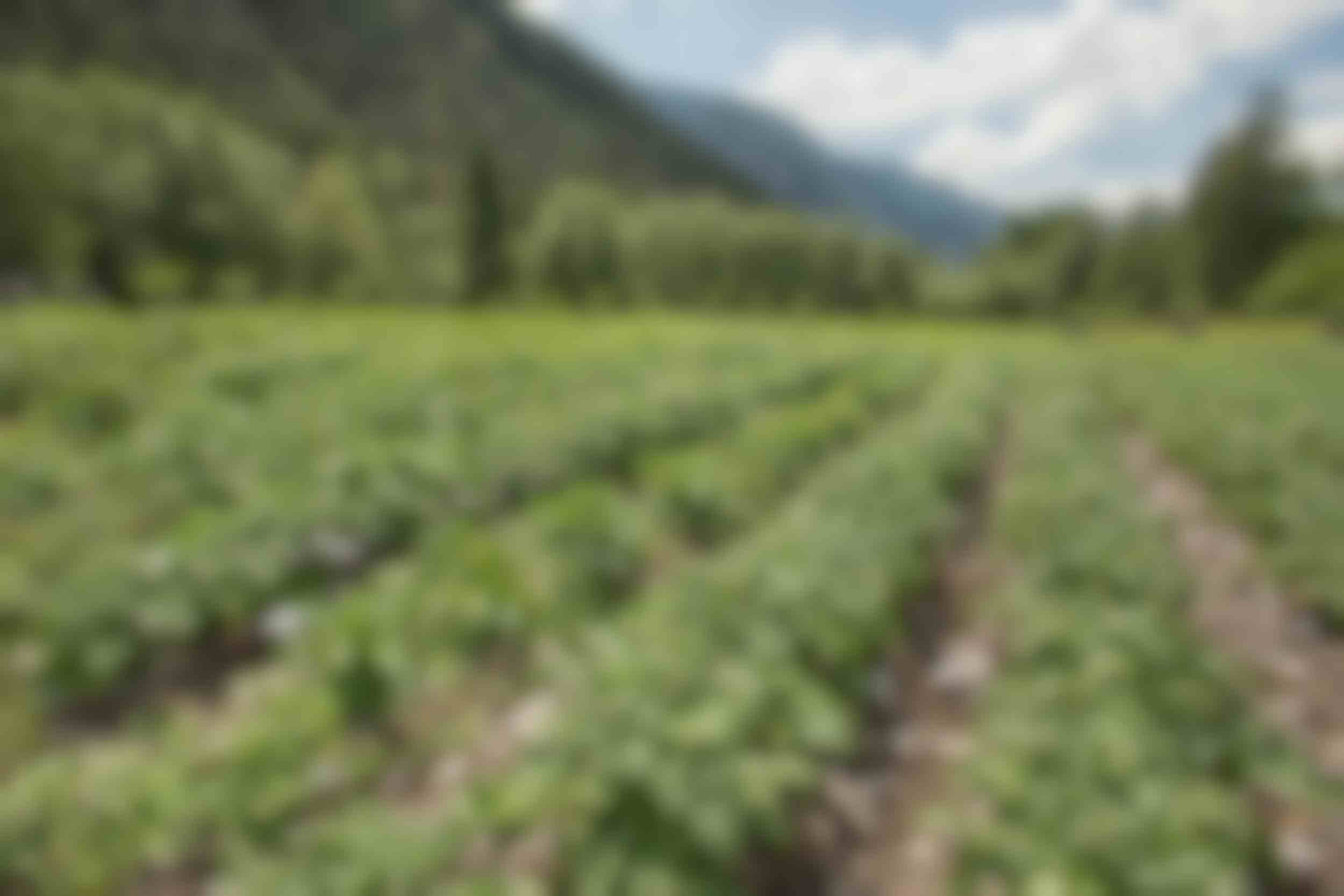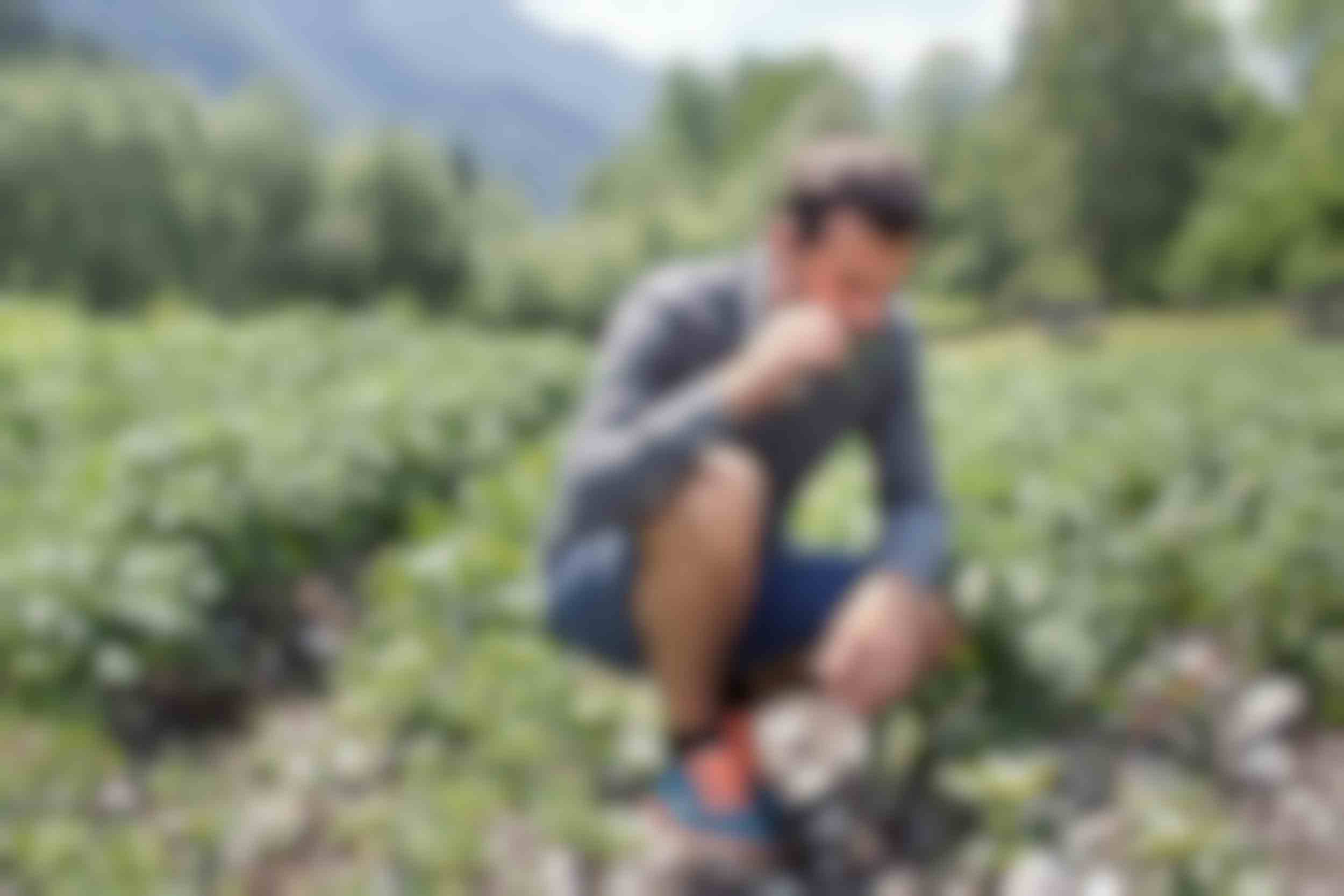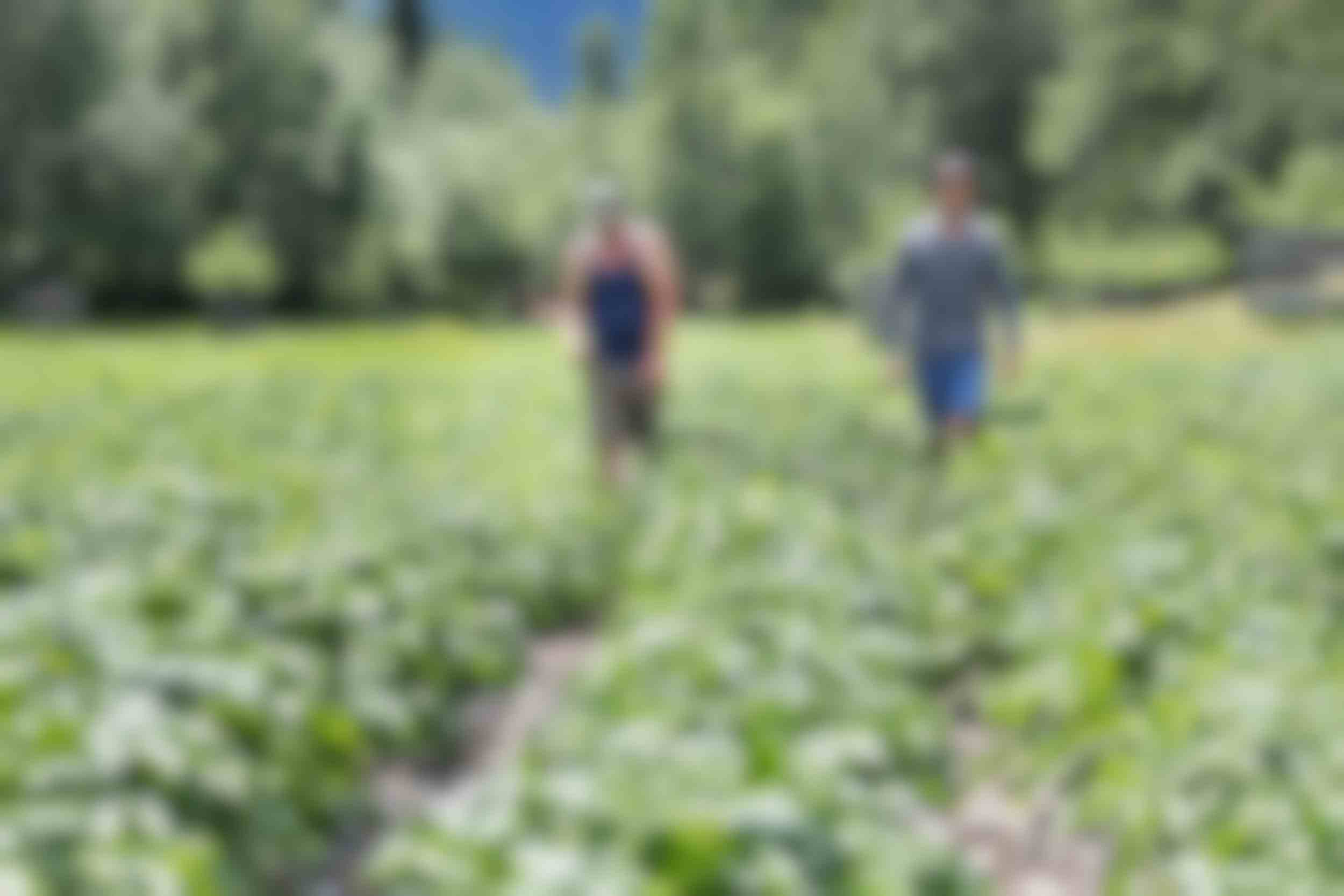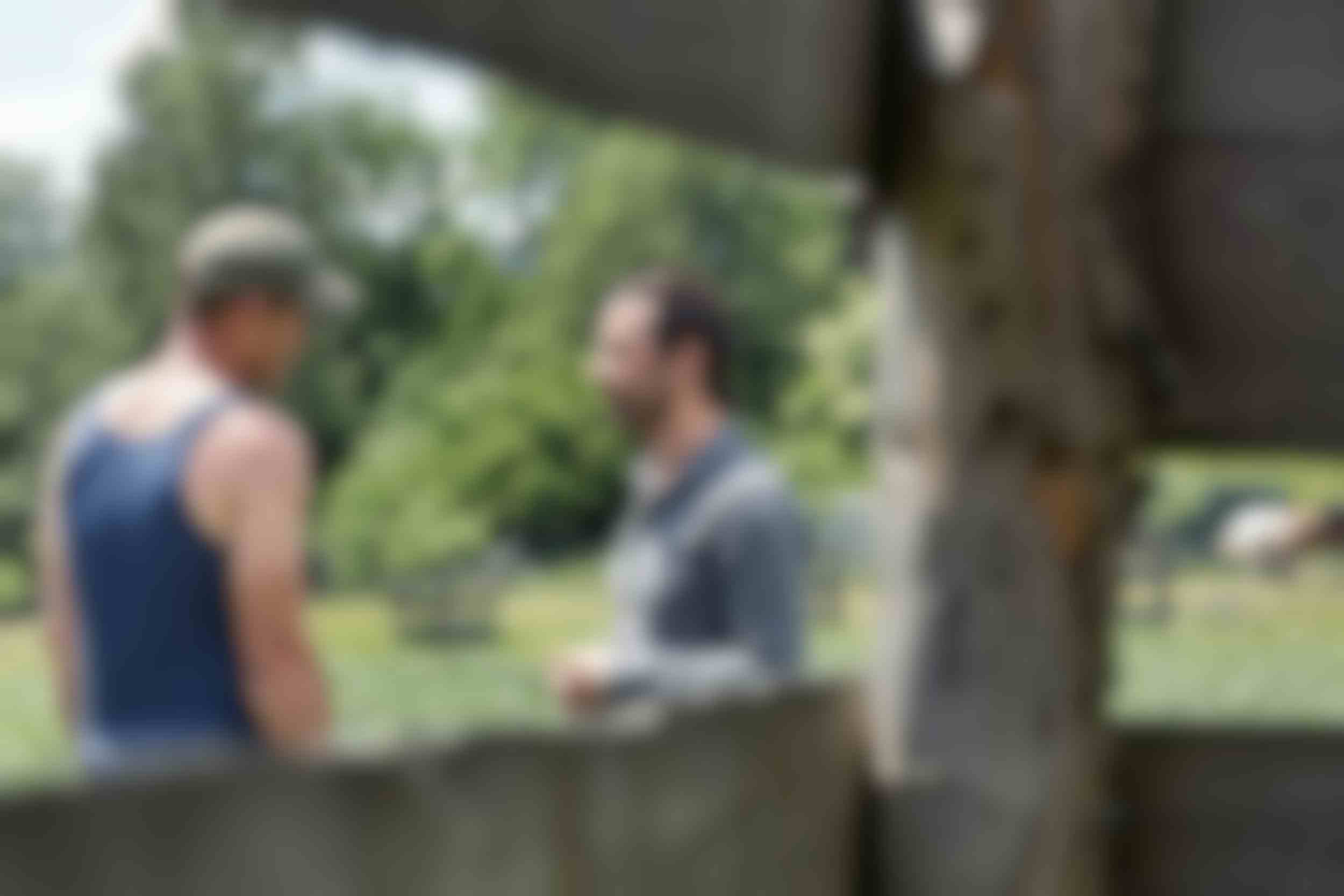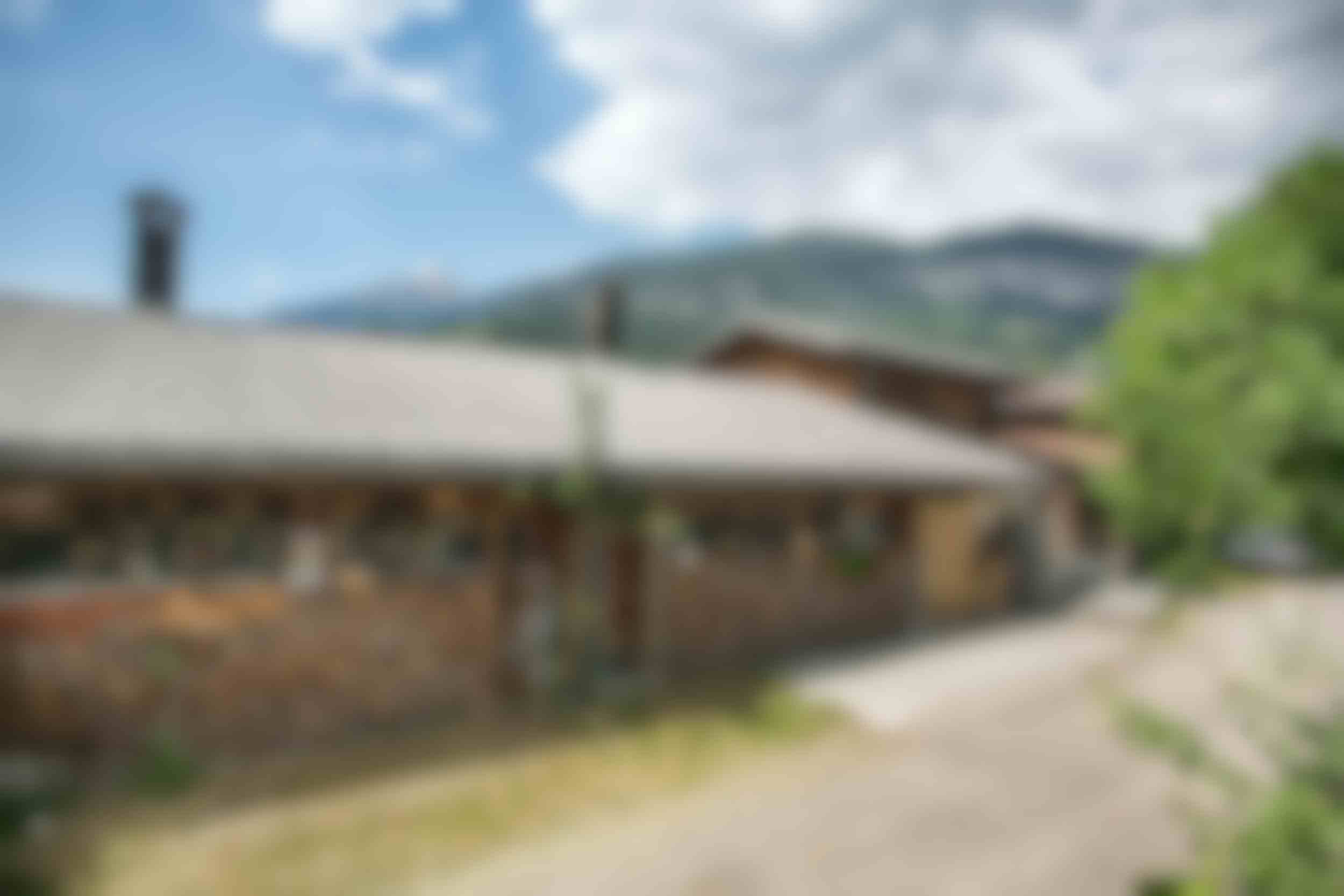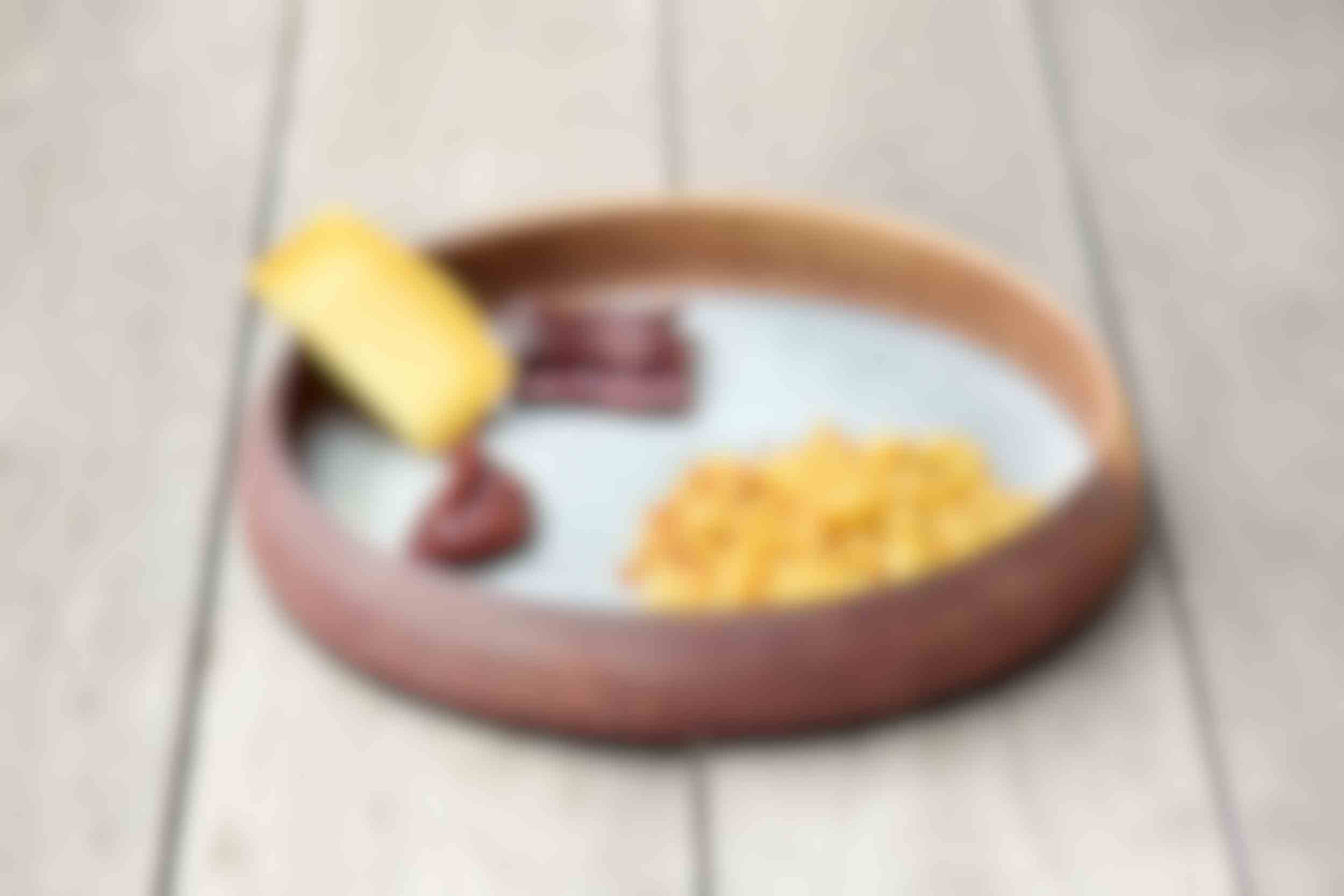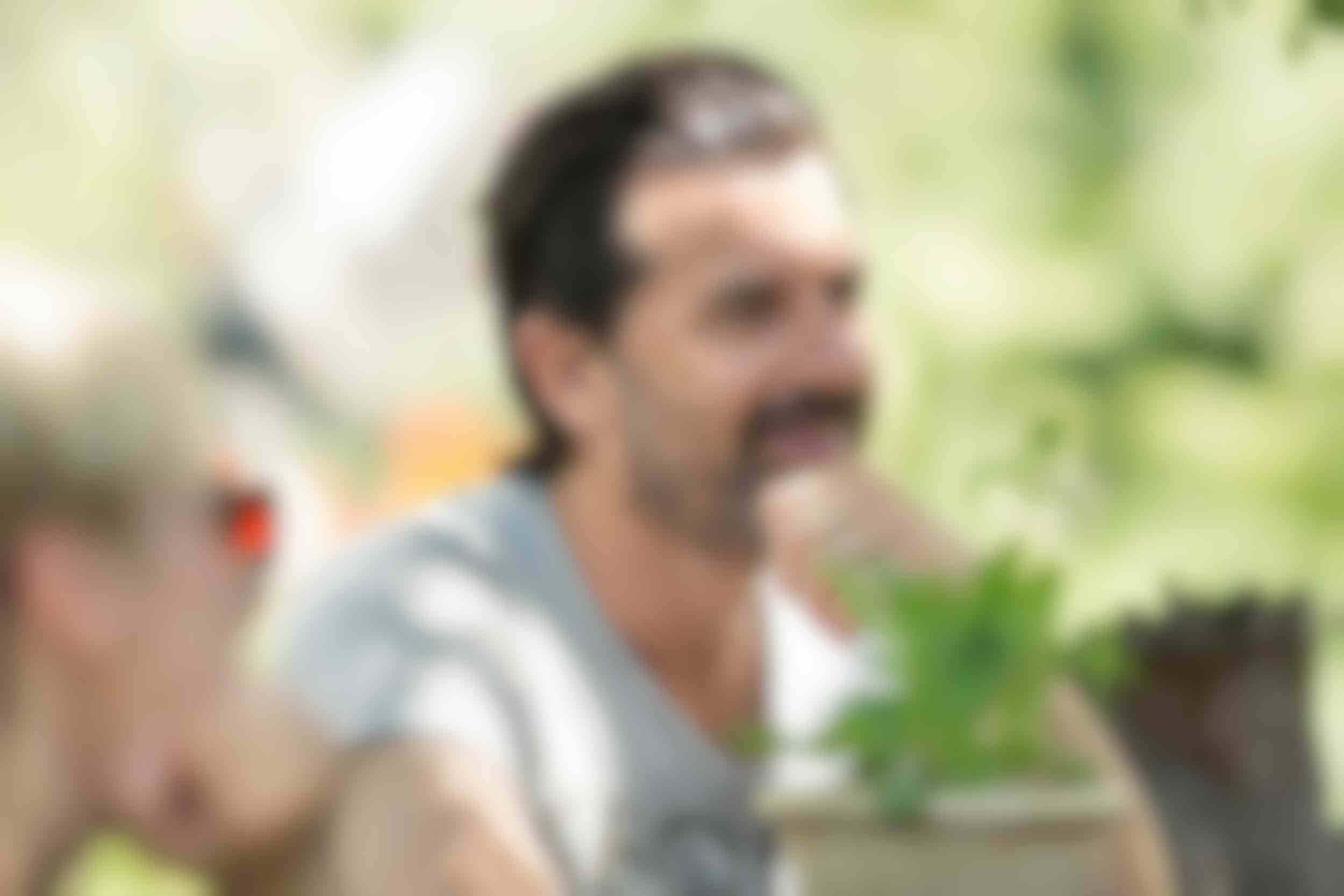«The only problem is that the stones make the harvest back-breaking work,» says Heinrich, furrows emerging briefly on his usually smooth brow. «The stones in the earth are too big for any machinery.» At Biohof Las Sorts, harvesting is done with the hands: long days spent «reading potatoes», a big strain on the fingers and lower back.
«Is that a Corne de Gatte?» asks Caminada almost bursting curiosity as Henrich pulls a potato plant from the soil. No, it’s a Parli, a red-skinned, knobbly tuber. Its flavour is reminiscent of artichokes and it’s a perfect ingredient for capuns. «If it has dots in the eyes or ingrown sprouts then it’s not healthy,» says Heinrich. This one is healthy, however, so Heinrich can continue confidently on. In the soil, which is impregnated with minerals, he shows Caminada the rows of thriving Rösseler (great for gnocchi) and a few other rows of Blaue Zimmerli (a good potato for rösti).
It becomes quickly apparent that both men have more in common than their healthy complexions afforded by the abundance of light in the valley. Both strive, and are driven, to discover new methods and ways to practise their respective professions. Since the beginning of the year, for example, Caminada has been serving up selected dishes enhanced by light art. A light plate is turned into a grass-green carpet of light on which Bündnerfleisch parfait, calf-tail jelly and barley Vinaigrette are served. It is his culinary speciality, his intention being to provide pleasure for all the senses. He takes everything delicious his homeland has to offer and brings it together in his dishes: Prättigau butter, trout and mountain potatoes. His cuisine is hearty, earthy and, despite its gourmet mantle, distinctly native. His dishes taste as it feels up here, but by serving them on a light plate he is nonetheless looking outside the box.
«When you’re located deep in a valley, you have to stay innovative,» says Heinrich. For him, it’s about cultivating potato varieties «not everyone grows», as the marketing says. Natives of Zurich with discerning palates can order produce from the warehouse in Feusisberg and have them delivered via the «potato taxi», a kind of car-sharing scheme in which drive the tubers into the city.
Even if the mountains here block the route to the horizon, both men are very farsighted. They know you have to hang in there to make sure a product doesn’t lose its value. You need to have a feeling for nature and the needs of the customer, and at the same time never lose sight of the
product’s source.
The most important aspect, however, is a sense of grounded-ness, in the literal sense, as planting potatoes is hard graft. It demands lots of work and patience from Heinrich’s family, as well as the ability to understand soil and nature.
You also have to be a bit mad to plant old varieties of potato such as Blue Swedes, Guarda or the violet-and-white Vitelotte Noire. Smiling, Caminada says, «You don’t want to be like anyone else, you want to try and forge your own path.» You may call it being stubborn, or focused, in short being a typical Graubünden local. Both men are clever enough to recognise what they have up here, and that they are both very deeply rooted in it. If you live in the heart of nature, if the mind is spared all the nonsense of the city, then the focus automatically turns towards what actually is.
If you want to development something traditional, and you want to keep it coherent and genuine, you need to know its roots. The seeds, flavours and varieties must not lose their origins, which is Heinrich’s biggest treasure. This knowledge allows him to grow his «gold in the soil». He may not be rich because of it, and quality does have its price for customers (12 Swiss francs per kilo), but it does have its value. «Even old people from the valley come to see us and buy a sack of Parli with their pension,» says Heinrich. «They say my potatoes taste like those they ate when they were kids.» That’s tantamount to a seal of approval. The strong farmer is visibly moved by the fact his potatoes are, for many people, a piece of home in culinary form.
Although Caminada and Heinrich are located only 25km apart, they found each other by total coincidence. Or was it divine providence that Caminada went on record in a magazine article a few years ago saying he would like to work more with local producers? The rest is history, or you can check it out on the menu. «We only use Rösseler potatoes to make gnocchi at Schloss Schauenstein,» says Caminada. «They are beautifully floury and bind everything together perfectly.» No surprise there, as mountain potatoes have a low water content. They are organic, which means they are cultivated without the use of nitrogen.
Caminada even uses Heinrich’s potatoes for his mashed potatoes and delicious potato-based crème brûlée. This mutual way of working strengthens and protects both men’s professional activities. Each one helps the other. They are so close geographically that Caminada can even pick up produce himself: potatoes of course, but today he is also taking away his own batch of salsiz to serve to guests in his Remisa.
The sun starts to go down at the Hof Las Sorts (Rhaeto-Romanic for fate or destiny). A mother duck waddles along with her little ones in tow and reaches a protected spot on the meadow where she takes her ducklings under her wings. Heinrich ponders for a moment. «The most important thing is for the plants to be at peace, never stressed,» he says. He says it with a sense of paternal care, the attitude he would also adopt when talking about his daughters.
Just like with children, in order to ensure that plants grow healthily, you have to prepare the groundwork and show patience. «We change the field every four years,» Heinrich says. «The earth has to be able to recover so that it can pass on all its goodness to new plants.»
While many places talk about the farmto-table process, Heinrich and Caminada are showing what happens if you take it one stage further: the soil-to-table process. This is how it works when everything is produced in a sustainable fashion. After all, it is only when the earth is healthy and injects its own life force into plants that the loop linking nature and humanity is complete. It is also how the potato stays what is it – the earth’s pure gold – at least at Hof Las Sorts.

